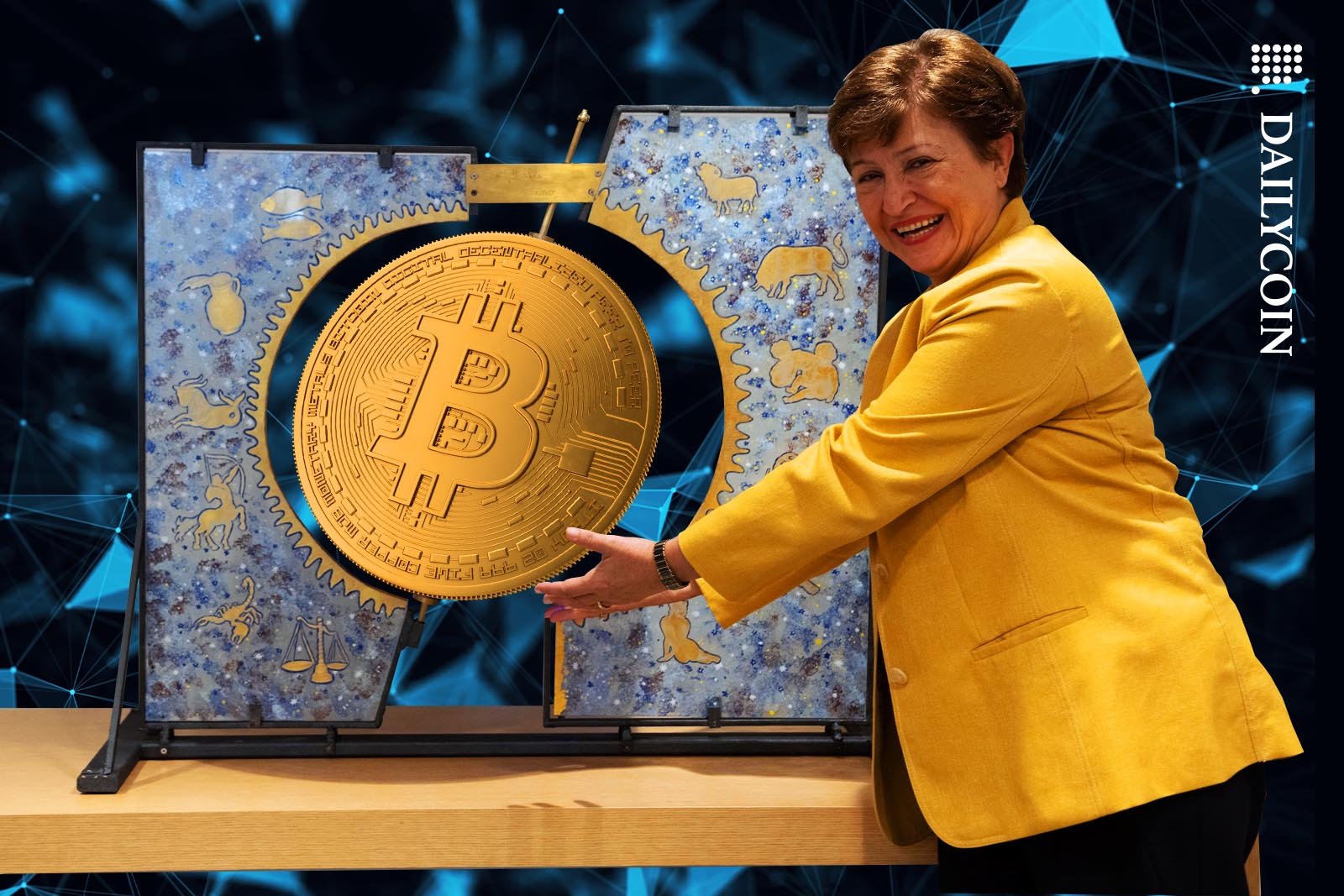
- The IMF published a Bitcoin study acknowledging its role in addressing economic imbalances.
- Some are skeptical about the IMF’s apparent U-turn on BTC.
- The report highlighted a “release valve” effect for the under-represented.
The International Monetary Fund (IMF) has been calling for tighter rules on Bitcoin (BTC) and cryptocurrency for many years, citing threats to economic stability and investor protection. This has given rise to the IMF being pigeonholed as an anti-crypto organization by digital asset advocates.
However, a recent IMF study analyzing the cross-border flows of Bitcoin appears to signal a potential shift in perspective. While stopping short of endorsing the leading cryptocurrency, the report frames Bitcoin as an essential tool many employ to circumvent capital controls and redress economic imbalances, leading to skepticism from some quarters given the IMF’s historical opposition.
IMF Skeptics Wonder What’s Up
Skeptical of the IMF’s apparent U-turn on Bitcoin, influencer Sean Doherty posited that the goal of the IMF paper was to rubberstamp Bitcoin at a governmental level. But Doherty suspects the motive is “to regulate it into oblivion” and turn it from “freedom money” into their own controlled system.
Sponsored
Jedi Blocmates echoed similar sentiments, stating that institutional involvement is the opposite of what Satoshi Nakamoto had envisioned for Bitcoin. While acknowledging a potential positive price impact from wider institutional acceptance, Jedi Blocmates argued price “is secondary to what Bitcoin was created to do.”
In attempting to grasp the IMF’s shift in perspective, others, such as Near The Edge, spotlighted the report’s portrayal of Bitcoin’s ascent as a “symptom” of imbalances within the conventional economy. This suggests that escalating global economic inequality catalyzes Bitcoin’s increasing appeal, notably in terms of cross-border flows in under-represented regions.
Bitcoin Lifeline
Unpacking the key findings in the IMF report, Bitwise CIO Matt Hougan highlighted the significant adoption of Bitcoin in under-presented countries with limited access to the broader global economy and restrictive capital controls. The report noted these flows were sizeable relative to the respective country’s GDP, suggesting Bitcoin is being leveraged as a “release valve” for economic restrictions.
Hougan also pointed out that the data portrayed the U.S. as an extreme outlier in its comparatively minuscule Bitcoin adoption versus traditional capital flows. This divergence implies that American perspectives may not accurately reflect the realities driving cryptocurrency usage in other nations facing greater financial limitations.
Sponsored
Perhaps most importantly, Hougan emphasized that the IMF’s detailed 43-page report, complete with literature reviews and sophisticated data analysis techniques, indicated that the organization is taking Bitcoin much more seriously as its global usage grows.
On the Flipside
- The IMF is criticized for imposing loan conditions that tend to inflict hardship on the citizens of the debtor country.
- Widespread Bitcoin adoption potentially disrupts traditional monetary policies and a nation‘s ability to control capital flows.
- Chainalysis noted that sub-Saharan Africans prefer stablecoins over Bitcoin due to the latter‘s price volatility.
Why This Matters
The IMF report brings legitimacy to Bitcoin’s disruptive capabilities, and its role in redefining how value transfers across borders outside of legacy systems. Moreover, the report signals that overlooking Bitcoin’s impact is no longer an option for governments.
Peter Schiff renews gold is better than Bitcoin hostilities.
Tokenized Gold Better Bitcoin than BTC: Peter Schiff Argues
The New York Stock Exchange proposes 24/7 stock trading.
Stocks May Go 24/7 as NYSE Eyes Crypto-Like Trading
